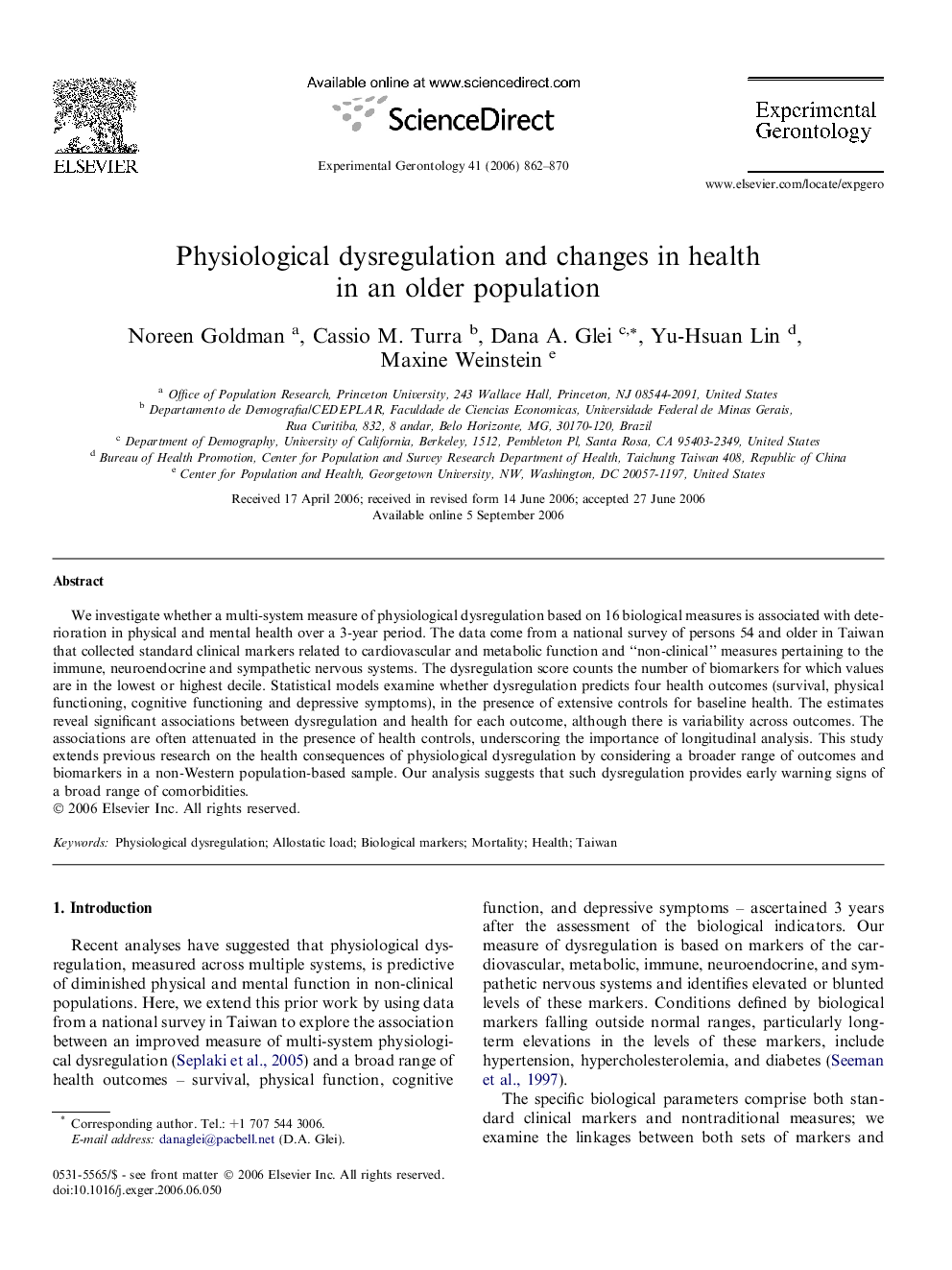| Article ID | Journal | Published Year | Pages | File Type |
|---|---|---|---|---|
| 1907417 | Experimental Gerontology | 2006 | 9 Pages |
We investigate whether a multi-system measure of physiological dysregulation based on 16 biological measures is associated with deterioration in physical and mental health over a 3-year period. The data come from a national survey of persons 54 and older in Taiwan that collected standard clinical markers related to cardiovascular and metabolic function and “non-clinical” measures pertaining to the immune, neuroendocrine and sympathetic nervous systems. The dysregulation score counts the number of biomarkers for which values are in the lowest or highest decile. Statistical models examine whether dysregulation predicts four health outcomes (survival, physical functioning, cognitive functioning and depressive symptoms), in the presence of extensive controls for baseline health. The estimates reveal significant associations between dysregulation and health for each outcome, although there is variability across outcomes. The associations are often attenuated in the presence of health controls, underscoring the importance of longitudinal analysis. This study extends previous research on the health consequences of physiological dysregulation by considering a broader range of outcomes and biomarkers in a non-Western population-based sample. Our analysis suggests that such dysregulation provides early warning signs of a broad range of comorbidities.
